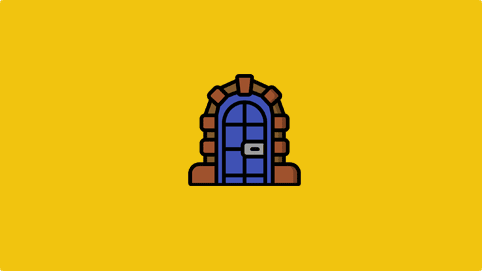Module description
This is the Trial Simulator for role-playing games based on medieval fantasy. It is one of the most useful tools for Game Masters who find themselves involved in a judicial plot due to the bad actions of their players. If they end up being detained and arrested, they will be put before a jury that will determine their guilt in the acts they are charged with and the sentence they will have to serve. This is really a difficult thing to do when the Game Master is a friend of his players! Therefore, this simulator helps in an impartial way to resolve the conflict.
When to use this simulator? We recommend using it when the players have been arrested and the trial is in progress. This tool is only for the purpose of reaching a verdict and giving guidelines for your storytelling. At the discretion of the Game Master, you can narrate the trial and even let the players defend themselves through a deacon or lawyer, so that they can add "points" in the list of parameters that will finally determine their fate. An example of this is given below. Even so, the Game Master will be able to use this simulator to solve quick trials, with a couple of clicks, helping a lot to lighten these events that are usually quite tedious.
How does this module work?
This Trial Simulator is somewhat more complex than others from Rolegenerator. On the one hand, it shows some parameters that must be filled in. These data are the evidence and conditions that will finally give a verdict on the case. It is a generic simulator, so it is valid for any type of trial. Whether it is a theft or threat (minor offenses) or a murder, kidnapping or arms trafficking (serious crimes). The first thing the Game Master has to do is to determine who is the Defendant and who is the victim. If the victim is the state or an organization, treat it as if it were a character when filling in the table. Each of the parameters and examples of their use are explained below:
- Defendant's Social Class: Depending on the social class of the character who committed the crime, the repercussions will be greater or lesser. If a nobleman steals from a free citizen, he will be declared innocent under a pretext based on social hierarchy in most cases, and no matter how much evidence there is against him, it is possible that even if he is declared guilty, the sentence will be insignificant. The opposite would be the case the other way around, and even for a simple theft, the citizen could be convicted with a serious penalty and executed for it.
- Social Class of Victim: Just as a defendant has power, so does the victim of the crime. It follows the same logic as we have seen in the previous point. Both fields can be filled in or left as "Undefined" which in that case will not be taken into account.
- Evidence for and against the defendant: This can range from witnesses to the facts, material evidence such as documents, evidence, interrogations, expert opinions or judicial recognition of the facts and places. For each point that is determined, it is to be considered for the verdict. The Game Master has total freedom to choose what will be considered significant evidence and what will not, since many times attempts will be made to present evidence without consistency, logic or sufficient weight.
- Type of crime: If the crime is not a serious one or is not typified (or simply not a major crime but not a minor one such as vandalism) you should leave the boxes blank. Otherwise, if the acts have caused injury, severe damage or are of a criminal nature, the Serious Offense box should be checked, which will aggravate the penalty. Similarly, a Slight Misdemeanor will be less likely to have a very severe sentence. Even so, a Slight Fault can be condemned with death if the factors are favorable, an example of this is if a Slave insults a character of the High Nobility, it is very possible that the Slight Fault will have a final traffic.
- Bribes: If one of the parties bribes the jury, it is possible that the penalty may be less or even acquitted of the charges. However, this box represents any kind of bribery and must be distinguished from having "great influence". A bribe can be material and involves tipping the balance a little more to one side. Having "Great Influence" means that the juror is in some way under the "control" of someone, be it economically, socially, hierarchies, political powers, or even because their own lives depend on it.
- Race, origin and alignment: This box must be checked if the character does not belong to the region where he/she is being judged, is of a different race than the juror or if their alignments are not compatible.
- Detention: Unless he is a prisoner of war, when a character is arrested he may try to flee. If this happens, the corresponding box must be checked. If, in addition, in his flight, he injures an authority or causes damage of any kind, the aggravating factor must also be checked. This will influence the jury's decision to determine guilt or innocence.
- Influence on the jury: Unlike "Bribery" this field must be checked if there is a real power controlling the jury. For example, in a witch hunt, the influence of the inquisitors on the jury is very high, not to mention putting a Duke or Marquis on trial in their own territories. This influence can also occur when a powerful sorcerer is put on trial, a villain with a lot of political and social wheeling and dealing, or when a verdict against him can have catastrophic consequences. If the trial is highly mediatized, this can also lead to strong pressure and influence on the jury.
- Criminal records: If a defendant has already committed other crimes and has been convicted of them, he or she is more likely to be charged as a recidivist.
The Verdict is the final judgment of the jury. It may be Innocent, Not Guilty or Guilty. Within "Guilty" the penalties vary between "Mild Penalties", "Serious Penalties" and "Very Serious Penalties". This verdict may result in a total acquittal on all charges or, on the contrary, in the summary execution of the defendant.





